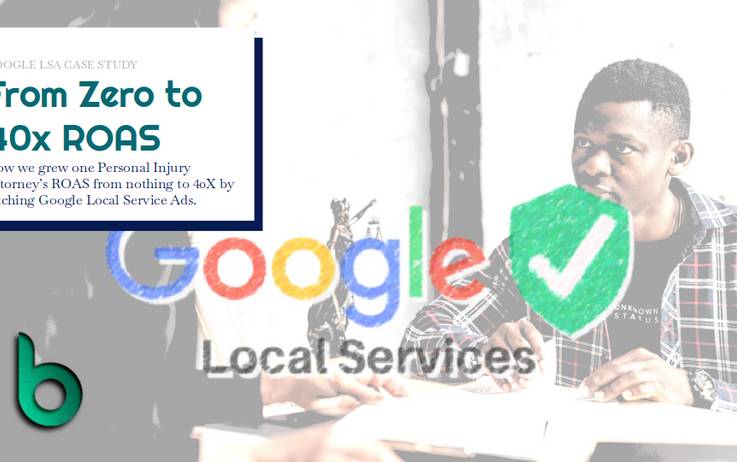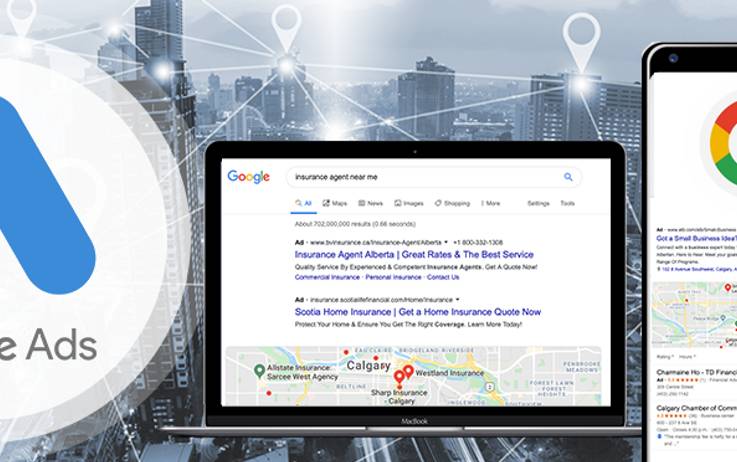8 Steps to Building Your Law Firm's SEO Strategy
This is a brief summary of SEO strategy, and our guides include other important aspects to help you rank your law firm's website. If you truly want to invest in driving major SEO results for your law firm, consider partnering with Branding Company for your business.
Share this story

There is no single answer that will help your ranking on hundreds of new keywords and elevate your domain rating overnight. However, there are a number of steps that will help you get there.
1. Set up a blog (if you don't already have one)
Blogging is the fastest way to start generating real revenue from your SEO efforts. A blog page that is frequently publishing content allows you to grow your domain rating and demonstrate authority, while also allowing you to target numerous keywords outside of the core pages on your site.
2. Perform an audit
After you’ve launched your blog, it can be helpful to get a baseline on your current site standings. You can do this by using a tool like Ahrefs to analyze each of your pages based on attributes such as backlinks, referring domains, organic keywords, organic traffic, and more.
3. Make a list of topics
Start by listing out all of your core competencies and service offerings.
For example, a general practice law firm might include:
- Corporate Law
- Criminal Defense
- Elder Law and Special Needs
- Family
- Immigration Law
- Insurance Law
- Labor and Employment
- Litigation
- Real Estate
- Tax
- Trusts and Estates
While the law firm might prioritize some services over another—because the average client value is higher, or one attorney in the firm is looking to open more case files over the next few months—for this step you should outline each service area plus any specialties.
4. Turn those topics into keyword opportunities
Each of the topics from step three should now be the basis for a number of keyword opportunities. Start by using a tool like Ahrefs or UberSuggest to search some of these topics. What you are likely to find is that most of your topics will be much too competitive for you to have a chance for ranking on them.
Legal services keywords are among the most competitive on the internet. If you are seeking to rank for “personal injury attorney,” there's likely 10,000 attorneys who have already beaten you to the punch. But, variations on “personal injury attorney” will be less competitive and provide you with an opportunity to start building your domain authority.
Ideally, you will want to find keywords that have:
- Keyword difficult/search difficulty of less than 10
- High search volume (minimum of 100)
- Have a high click percentage
- Are the right intent
Next, use Ahref's “Having Same terms” search expansion or UberSuggest's “Keyword Ideas” to start unearthing real keyword opportunities.
UberSuggest also provides “Content Ideas" that list popular blog posts under your keywords and provides the backlinks and social shares for those target words.
Whichever tool you use, you will see a number of related opportunities with low keyword difficulty and relatively high search volumes. These keywords can then be categorized and form the foundation of your blog.
5. Organize your keyword opportunities
Next, you'll need to determine the type of content that each of your keyword opportunities will require. To do this, I like to reference this matrix from the TrafficThinkTank. Almost every keyword opportunity you uncover should fall under one of these seven categories: product (service) features, comparisons, listicles, reviews, alternatives, knowledgebase, and cancellations.
The category that each keyword falls under will inform the content that you should create for that keyword. That being said, unless you have a veteran blog/SEO team, I wouldn’t recommend targeting cancellation-based terms.
6. Create your content and optimize for on-page
Key things to remember with on-page optimization:
- Your content should be at least 1,000 words in length
- Your focus keyword (and tertiary keywords) should have strong keyword densities in the text (2 percent)
- Include your focus keyword in image alt text, but make sure it fits naturally
- Include the focus keyword in your title, at the front if possible
- Use keyword variations throughout the body
If you have a WordPress site, Yoast is a great plugin to guide you through on-page content optimization.
7. Do some off-page work
Backlink building becomes a tricky and tedious process akin to cold prospecting. If you want to do it yourself, Neil Patel has a thorough backlink building guide and UberSuggest tutorial. If you don't want to do it yourself, backlink building is part of Branding Company's SEO service for law firms. Simply book a 15-minute meeting and we will start the process of ranking your site for you so that you can focus on your clients.
In short, the process is to find similar content on the web, discover the sites that already link to this similar content, and reach out to the publisher with a request that they link to your new content as well.
8. Set up tracking
You’re going to want to make sure that you create some dashboards to track your growth and success—and Data Studio is the best platform for doing so. Alternatively, depending on the CRM that you’re using, there may already be built-in SEO tracking functionality.
This is a brief summary of SEO strategy, and our guides include other important aspects to help you rank your law firm's website.
However, if you truly want to invest in driving major SEO results for your law firm, consider partnering with Branding Company for your business. Whether you want to book a 15-minute meeting or get started with a free marketing needs assessment, Branding Company will work with you to establish clear goals and maximize your SEO's ROI.

News & Promotions
The Latest

Filed under:
Google Ads: The Fastest Way to Grow
Most local pros lose money on Google Ads: not because it’s broken, but because they are. Here's how to stop burning cash and start booking clients fast.
Tue Jul 29 2025

Filed under:
From 0 to 40x ROAS with LocalAds
If you're not seeing leads from Google LSAs, Branding Company’s programmatic advertising will help you immediately put your marketing budget to work reaching the potential customers you want to influence.
Mon Oct 31 2022

Filed under:
How Your Website Can Score a Perfect 100% on Google PageSpeed Insights
The faster your website loads, the longer visitors stay connected and the lower your bounce rate. If your bounce rate is too high, Google assumes that your site doesn't answer a visitor's questions and you will be demoted in the search rankings.
Fri Jul 02 2021

Filed under:
Local Advertising (Omni-Channel)
One Audience. One Objective. One Budget for Advertising on digital ads for display, video, OTT, social, and search. Programmatic, Google, Facebook, and mobile location advertising made simple!
Sat Jun 26 2021

Filed under:
Pay Per Click Google Ads
Branding Company is pleased to offer our clients fully managed Google Ads campaigns at three different tiers, built to attract clients for your legal services, in your target area to maximize your budget. And for most packages, we do not even take a management fee on your advertising budget.
Sat Jun 26 2021

Filed under:
SEO for Law Firms: How To Grow Your Online Visibility
By doing smart SEO and making sure your expectations are realistic regarding the absolute amount of traffic and local leads you can aim for, you can ensure that your law practice will do better than your competitors and snag clients without expensive paid ads.
Sat Jun 26 2021
